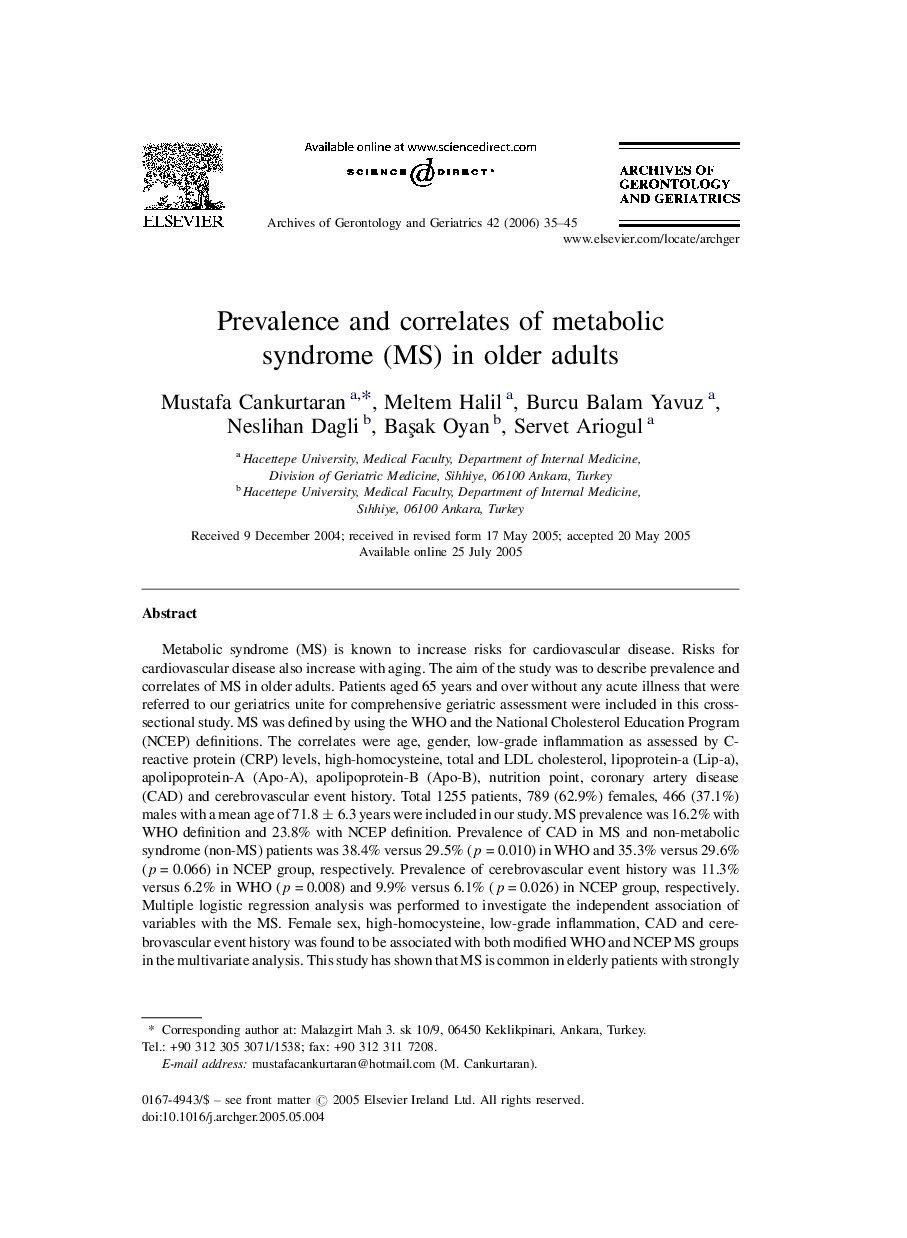| Article ID | Journal | Published Year | Pages | File Type |
|---|---|---|---|---|
| 1904308 | Archives of Gerontology and Geriatrics | 2006 | 11 Pages |
Metabolic syndrome (MS) is known to increase risks for cardiovascular disease. Risks for cardiovascular disease also increase with aging. The aim of the study was to describe prevalence and correlates of MS in older adults. Patients aged 65 years and over without any acute illness that were referred to our geriatrics unite for comprehensive geriatric assessment were included in this cross-sectional study. MS was defined by using the WHO and the National Cholesterol Education Program (NCEP) definitions. The correlates were age, gender, low-grade inflammation as assessed by C-reactive protein (CRP) levels, high-homocysteine, total and LDL cholesterol, lipoprotein-a (Lip-a), apolipoprotein-A (Apo-A), apolipoprotein-B (Apo-B), nutrition point, coronary artery disease (CAD) and cerebrovascular event history. Total 1255 patients, 789 (62.9%) females, 466 (37.1%) males with a mean age of 71.8 ± 6.3 years were included in our study. MS prevalence was 16.2% with WHO definition and 23.8% with NCEP definition. Prevalence of CAD in MS and non-metabolic syndrome (non-MS) patients was 38.4% versus 29.5% (p = 0.010) in WHO and 35.3% versus 29.6% (p = 0.066) in NCEP group, respectively. Prevalence of cerebrovascular event history was 11.3% versus 6.2% in WHO (p = 0.008) and 9.9% versus 6.1% (p = 0.026) in NCEP group, respectively. Multiple logistic regression analysis was performed to investigate the independent association of variables with the MS. Female sex, high-homocysteine, low-grade inflammation, CAD and cerebrovascular event history was found to be associated with both modified WHO and NCEP MS groups in the multivariate analysis. This study has shown that MS is common in elderly patients with strongly related to CAD and cerebrovascular events. Low grade inflammation as assessed by CRP and high-homocysteine level is strongly related to MS.
